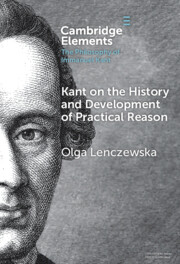Element contents
Kant on the History and Development of Practical Reason
Published online by Cambridge University Press: 16 January 2025
Summary
- Type
- Element
- Information
- Online ISBN: 9781009216760Publisher: Cambridge University PressPrint publication: 30 January 2025
References
- 2
- Cited by

